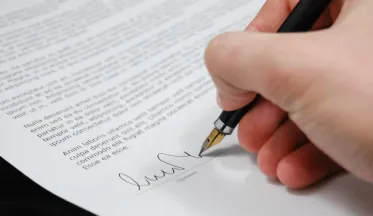Have Questions? Contact Us.
Since its inception, NYCLA has been at the forefront of most legal debates in the country. We have provided legal education for more than 40 years.

The Supreme Court of the United States is the only federal court in the nation that is not subject to a Code of Ethics. Indeed, it is likely the only court in the entire United States, state or federal, that is not so bound. As one of the most respected court analysts has put it: The regulation of federal judges’—including justices’—ethics has been a recurrent topic throughout American history. In just the last half century, aberrant federal judicial behavior, including the Justice Fortas controversy, prompted the Judicial Conference to adopt its Code of Conduct for United States Judges in 1973, and Congress to enact the 1980 Judicial Conduct and Disability Act.¹
Despite these reforms, no code of ethics on the US Supreme Court has been adopted. It is time for
that to change.
Declining Confidence in the Court
The Supreme Court faces declining confidence in the Court’s institutional role.² Some of that may be due to recent, politically charged, decisions on issues such as abortion rights and firearms regulations, which represent a departure from longstanding precedents. Beyond that, some of the loss of confidence may stem from the politicization of the nomination process.
The public perception, rightly or wrongly, is that the Court has become more polarized and more ideological. The Court’s use (some might say misuse) of the so-called “shadow docket,” along with the increasingly small number of matters the Court accepts for review each year, also tend to distance the Court from the public.
There is, however, another significant factor contributing to the decline in confidence: the perception that the Court lacks appropriate ethical standards. That perception is understandable, because in fact the Court has no publicly available code of ethical conduct and no transparent process for the consideration of questions of such conduct. We say it again: it is time for that to change.
In recent years, serious questions have been raised about the ethical standards that ought to govern Justices of the Supreme Court. For instance, questions have been raised about whether Justices should be commenting, even in the abstract, about legal issues that might eventually make their way to the Court. Questions have been raised about whether Justices should be recusing themselves more often because of potential conflicts of interest, or the appearance of a conflict, as the lower court judges routinely do. And questions have been raised about the acceptance by Justices, past and present, of travel packages and other gifts paid for by wealthy individuals or organizations. While NYCLA does not wish to single out any particular Justice for criticism, recent reports by ProPublica and others concerning Justice Thomas³ have brought this issue into national focus.